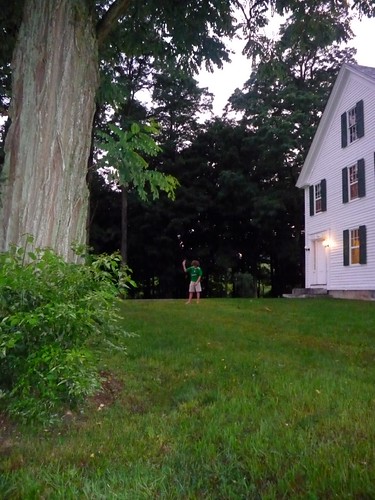Peter Dutton walks back offer of second referendum after voice poll
Dutton #Dutton

Peter Dutton has dramatically walked back his offer to symbolically recognise Indigenous Australians in the constitution, declaring Australians are “over” referendums after the voice poll.
On Monday the opposition leader all but abandoned his much-criticised suggestion of a second referendum, declining to recommit to the idea and warning that Australians won’t want a referendum “for some time”.
The policy will be reviewed by the Coalition senators Kerrynne Liddle and Jacinta Nampijinpa Price, the shadow minister for Indigenous Australians and leading no campaigner.
While the opposition seeks to maximise the political damage by blaming the prime minister, Anthony Albanese, Labor faces calls for an accelerated rollout of the remaining elements of the Uluru statement from the heart, truth telling and treaty making, and an emphasis on practical solutions to close the gap in Indigenous outcomes.
The federal cabinet will meet to discuss the Albanese government’s next steps to address Indigenous disadvantage, with senior government figures favouring an interim listening mechanism to provide advice directly to the prime minister.
Dutton said: “We said that the question put to the Australian people should have been on recognition and dropped the voice because people supported recognition but not the voice. The prime minister didn’t do that.”
“The prime minister embarked on a divisive path,” Dutton told reporters in Canberra. “He spent $400m of taxpayers money. He was warned not to go down this path of division and he bears the responsibility for where our country is today.”
Asked about his policy for a second referendum to recognise Indigenous Australians in the constitution, Dutton said “look, all of our policy … is going to be reviewed in the process Kerrynne and Jacinta will lead now”.
“I think that’s important, but I think it’s clear that the Australian public is probably over the referendum process for some time.”
Dutton said that “millions of Australians at the moment are hurting because the prime minister has been completely obsessed with the voice over the course of the last 16 or 17 months”.
The deputy prime minister, Richard Marles, said “the referendum was not a vote against reconciliation, the referendum was not a vote against closing the gap”.
“If you look at the way in which both the yes and no cases were argued, we can take from the referendum an increased resolve to act on closing the gap and to act on reconciliation,” Marles told reporters in Canberra.
“And that’s really what we need to take forward now, and in a sense of unity across the country.”
Although more than 60% of Australians voted no to the voice, opponents came to that position from a variety of perspectives: from shadow minister for Indigenous Australians Price’s claim that there were no ongoing negative impacts from colonisation, to independent senator Lidia Thorpe’s case that a no vote would advance Blak sovereignty.
Those contradictions continued on Monday in a train-wreck interview by the leading no campaigner Warren Mundine, who has caused consternation among conservatives by calling for treaties with Australia’s First Nations.
Asked about his position on treaties, Mundine told Radio National that Indigenous Australians were in one sense recognised “through land rights and through native title”.
skip past newsletter promotion
Sign up to Afternoon Update
Our Australian afternoon update breaks down the key stories of the day, telling you what’s happening and why it matters
Privacy Notice: Newsletters may contain info about charities, online ads, and content funded by outside parties. For more information see our Privacy Policy. We use Google reCaptcha to protect our website and the Google Privacy Policy and Terms of Service apply.
after newsletter promotion
Treaty “has to be with the traditional owner nations and it’s got nothing to do with sovereignty”, he claimed, even though recognition of First Nations sovereignty is an integral part of treaties.
Mundine appeared to conflate treaties with other agreements struck between groups of Indigenous people and “private enterprise, whether it’s governments or state and territories, in building roads, building rail … building houses, or getting projects and mining and energy and agriculture or whatever else”.
Mundine said that voters “did want to see Aboriginal and Torres Strait Islanders in the constitution as the first people of Australia [but] they rejected the voice”.
Mundine said that he’d “love” symbolic constitutional recognition and polling suggested that 90% of Australians agreed.
“But the issue we got, and we all know this, is that that is the leadership of the Aboriginal community … they don’t want it and that so that’s going to be a problem.”
Asked if constitutional recognition would happen, Mundine replied: “Well, I don’t know to be honest. What we got to do is do something that the government failed to do, that Albanese failed to do, and that is get everyone onboard for things to happen.”
The influential crossbench senator Jacqui Lambie criticised Indigenous leaders behind the Uluru statement for taking a week of silence to “grieve” the result.
“You need to come out and fight now – come out and say to the leader of this country ‘what are you going to do for Indigenous communities out there?’,” Lambie told Sky News.
“But having a week’s break – not on guys, you need to stand your ground now, you need to come out and say ‘you’ve put us on a bloody life support for two years while you’ve been trying to sell this voice, and in the meantime you’ve done nothing in the Indigenous communities out there.”
The Greens have called for the government to establish a national truth and justice commission. Lambie labelled truth-telling a “talkfest”.